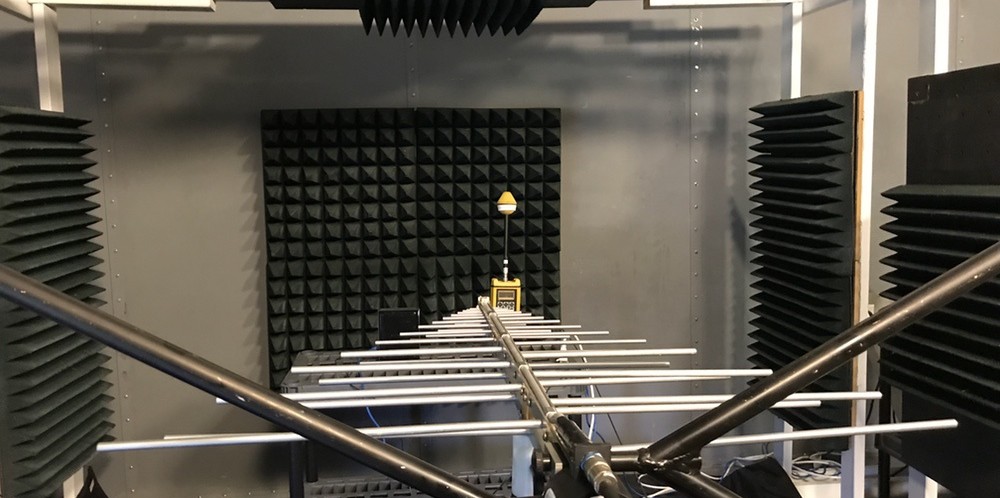
CE Mark vs. FCC Testing: What Sets Them Apart?
In the intricate world of product development, compliance testing isn't just a box to check; it's a cornerstone of market entry and consumer safety. For over 30 years, Green Mountain Electromagnetics, or GME, has been at the forefront of this vital service, witnessing and adapting to the evolving landscape of electromagnetic compatibility testing. But what exactly sets apart two of the industry's key players: CE Mark and FCC Testing? Let's find out.
Understanding CE Mark and FCC Testing
If you’re facing the world of electronic device compliance, you’ve likely encountered two critical certifications: CE Mark and FCC Testing. Each is a nonnegotiable ticket to its respective market — CE for the European Economic Area and FCC for the United States.
Electromagnetic interference prevention is paramount in the realm of electronic devices. The CE Mark and FCC label play a crucial role in ensuring this. By undergoing FCC or CE EMC testing, manufacturers reduce their risk of facing penalties or other consequences related to noncompliance.
CE Mark Overview
The CE Mark, the official emblem required for all goods sold in the European Economic Area, falls under the jurisdiction of the European Union as part of the Radio Equipment Directive. This symbol represents compliance with the EU's New Approach Directives, which include consumer electronics and CE marking. A wide range of products falls under these directives, such as electronics, machinery, medical supplies, sunglasses, personal protective equipment, toys and other electronic equipment.
The significance of obtaining a product with the CE Mark goes beyond just fulfilling requirements. It also requires safety testing for products sold to consumers within the European Economic Area. The mark indicates that a thorough evaluation has been conducted on the product to meet strict standards related to health, safety and environmental protection set by the EU. With this designation, you can have confidence in a product’s quality and know that it meets top-notch EMC and safety measures imposed by European Union regulations.
FCC Testing Overview
The FCC Supplier’s Declaration of Conformity process, which verifies the adherence to interference prevention criteria of electronic devices marketed in the U.S., has a similar but smaller role compared to European testing. This is in accordance with the FCC’s responsibility for maintaining consistent standards across communication media and channels. Electromagnetic compatibility testing is crucial to the SDoC process.
The FCC label not only serves as a mark but also makes a statement about an electronic device’s successful completion of emissions testing, ensuring its noninterference with other electronic devices. To ensure products meet their intended environment requirements, they are classified into two categories:
Class A for commercial or industrial use that has less stringent demands, while Class B includes consumer-use items subjected to more rigorous emissions limits.
Key Differences Between CE Mark and FCC Testing
While CE Mark and FCC Testing are crucial certifications for electronic products, they differ significantly in terms of their scope, applicable standards and application procedures.
Scope and Standards
The CE Mark is a certification that encompasses a diverse range of products. This mark indicates compliance with European EMC and safety regulations for trade within the European Economic Area. CE EMC requirements includes both emissions and immunity testing. Product safety testing also applies for the CE Mark.
In contrast, FCC Testing focuses specifically on EMC testing of electronic goods sold in the United States. Its main purpose is to ensure that these products meet specific standards regarding safety and prevention of interference. FCC EMC requirements includes only emissions testing. The FCC does not regulate immunity or product safety.
However, both CE and FCC testing covers various aspects including product labeling and measures against potential communication interferences. The goal here again lies at ensuring all established standards and regulations are met before releasing respective items into the market.

GME’s Experience and Expertise
With a history spanning three decades, GME has mastered the nuances of both CE Mark and FCC Testing. This ensures our ability to navigate the complex terrain of EMC testing for a variety of industries.
Our extensive experience gives us a unique perspective that benefits every client. GME’s deep-rooted history in the field is not just a testament to longevity but a reflection of adaptability and foresight in an industry that’s constantly evolving.
Elevating Your Compliance Journey with GME
Understanding the distinctions between CE Mark and FCC Testing is crucial in choosing the right compliance path for your product. With GME's seasoned expertise, navigating this landscape becomes less of a challenge and more of an assured journey towards market success.
Ready to ensure your product meets the highest standards of compliance? Contact Green Mountain Electromagnetics today for expert guidance and testing services tailored to your needs.